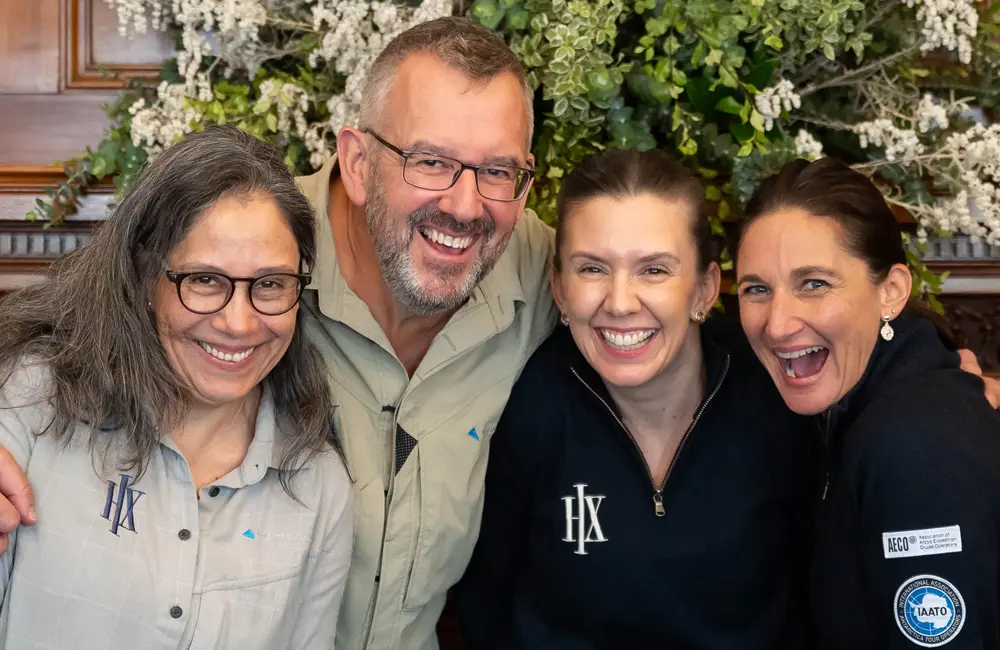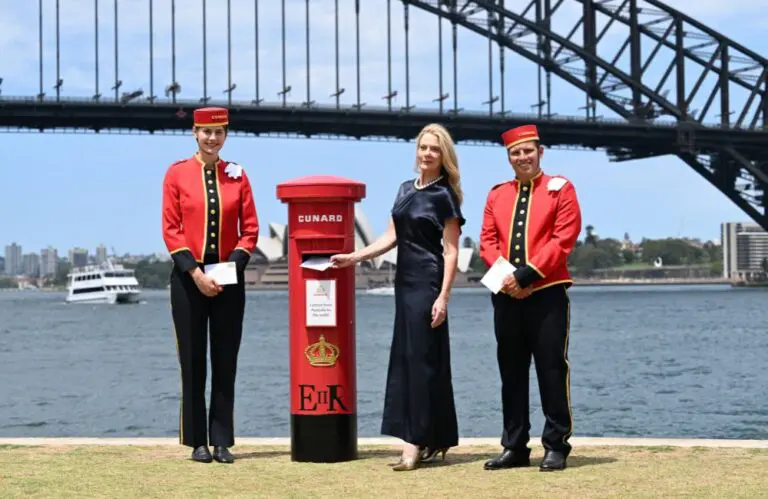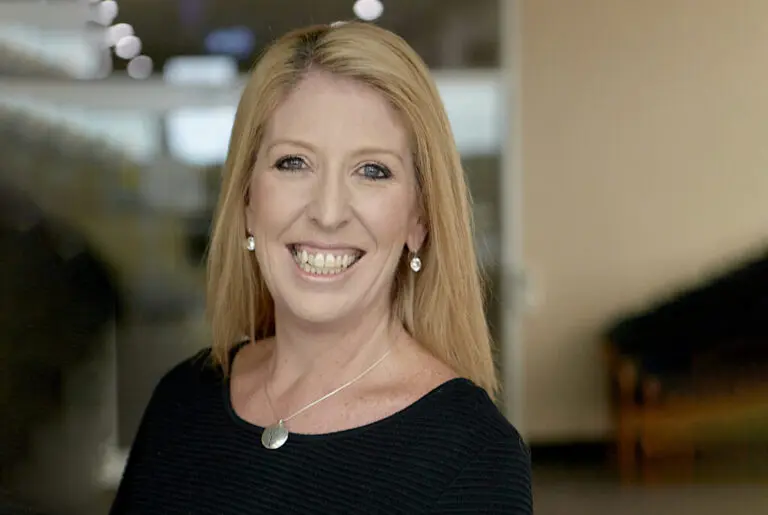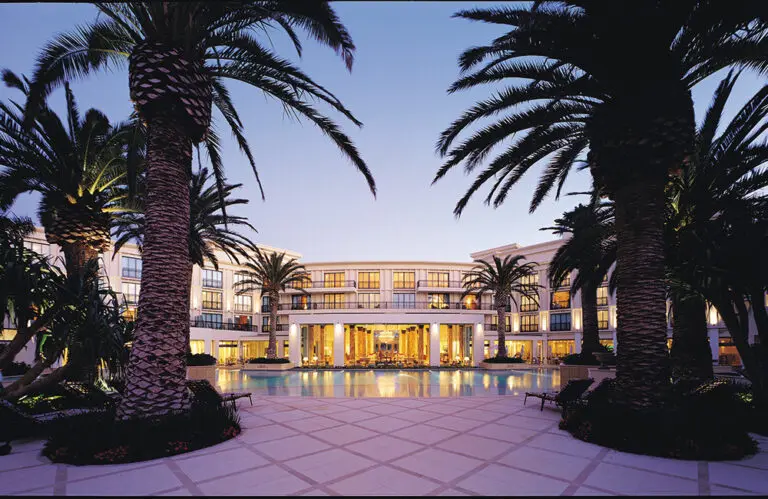How HX Expeditions’ Antarctic Ambassador Tudor Morgan and Chief Scientist Dr Verena Meraldi inspire travellers to explore more: essential info for adventure-loving clients who want to make a difference.
In the lead-up to their recent visit to Sydney, Dr Verena Meraldi and Tudor Morgan spoke with Karryon about their roles with HX Expeditions, what attracted them to the world’s most remote, icy wildernesses in the first place – and why expedition cruising appeals to information-hungry travellers who want to make a difference.
Morgan, who has been involved with HX since 2007 and joined the company full time in 2016, says, “I have been passionate about going to the polar regions since I was a boy. I really wanted to winter in Antarctica and the only way I could do that was with the British Antarctic Survey.”
He gained a geology degree and that, combined with his experience of mountaineering and guiding in Norway and Iceland, led to working with the Survey as a field and mountain guide for two and a half years. “Before I knew it, I had fulfilled my dream of wintering in Antarctica – twice. The polar regions are very addictive.”
So much so that Morgan has served on the executive committee of the International Association of Antarctic Operators (IAATO) for several years and has some 30 years’ experience as an expedition guide and leader in Antarctica.
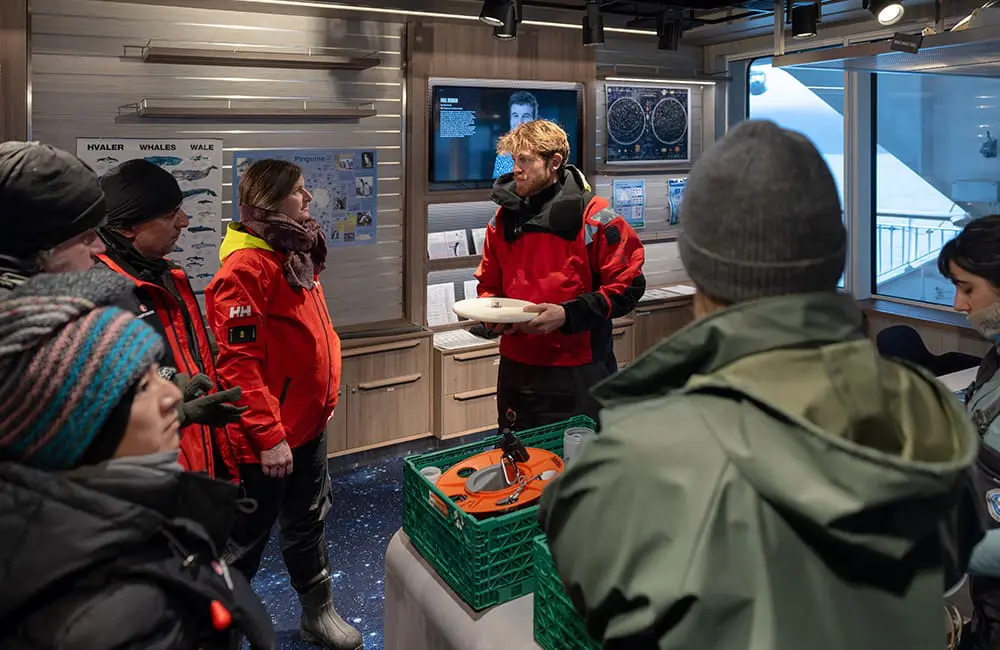
The power of learning
Meraldi, now HX Expeditions’ Chief Scientist, first visited in Antarctica in 2007 as a guest lecturer on an HX ship. It was a turning point for the highly qualified Swiss-Mexican biologist – she was convinced that when visitors have a deeper understanding of Antarctica’s fragile environment, they are motivated to protect it.
Since that first trip, she has been a driving force behind HX’s extensive Science and Education program and in 2018 became the cruise industry’s first Chief Scientist. One of the many projects Meraldi is closely involved in is HX’s partnership with the University of Tasmania (UTAS) and its Institute for Marine and Antarctic Studies (IMAS).
Last year they launched a world-first online education program for travellers heading to the White Continent. A new two-tier course has just been released and in 2026 they will launch Arctic introductory courses, featuring programs for Alaska, Arctic Canada, Greenland, Iceland, the Northwest Passage and Svalbard.
When sailing in Antarctica, does Meraldi see a difference in guests who have taken the course? “Yes, it’s very noticeable,” she says. “What I love about our science and education program is that we are trying to wake up the curious child who is sleeping in all of us. Once you’ve got people’s attention, there’s no turning back. They always want to know more.”
Meraldi has been instrumental in introducing hands-on citizen science programs such as NASA Globe and Happy Whale on all HX’s expedition ships and she says guests find them “super-rewarding – they also love the ongoing involvement when they are back home”.
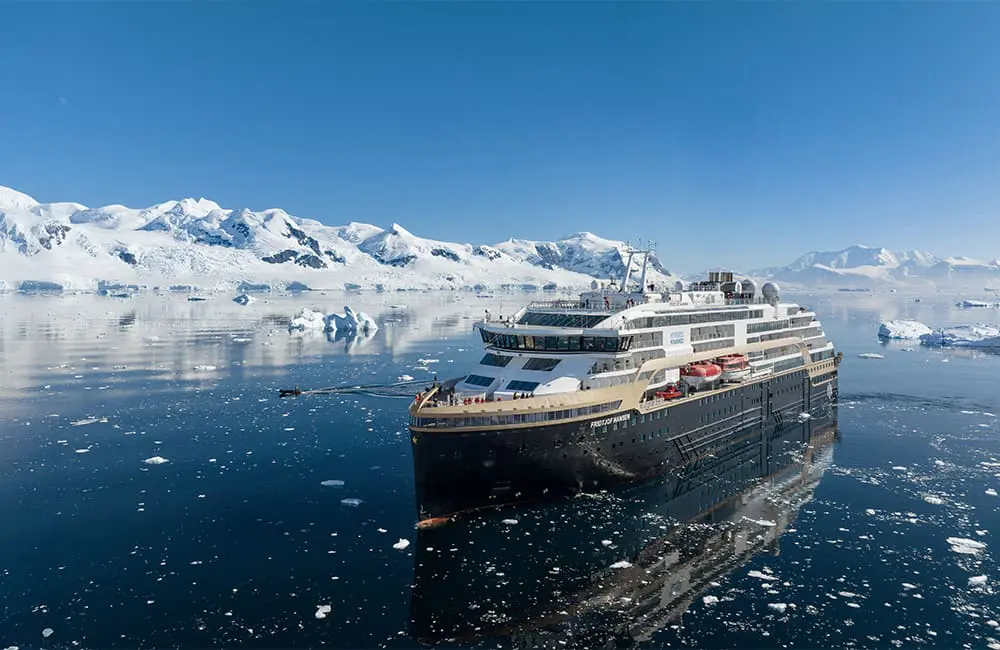
Supporting science
HX has been supporting UTAS research for many years, hosting scientists on the ships in Antarctica in all seasons. Meraldi says that in 2024-2025 HX provided more than 2,000 cruise nights for researchers. “We hosted more than 80 researchers working on 20 different projects, and this was just in Antarctica.
“We also work in the Arctic, partnering with Harvard and other major universities. One project we’re doing with the University of Delaware is looking at helping former mining communities in Greenland to develop tourism opportunities around the abandoned mines – building a museum is one possibility.”
Tudor adds, “Enabling scientists to conduct valuable research is part of our responsibility to preserve sensitive environments – it’s also partly a way for us to give back. Getting to these places is incredibly difficult for the scientific community. There are very few dedicated research vessels, it’s hard to get grants and it’s an extremely expensive exercise.
“And the big win is that guests really enjoy meeting the scientists onboard and learning about their work. Their feedback is amazing.”
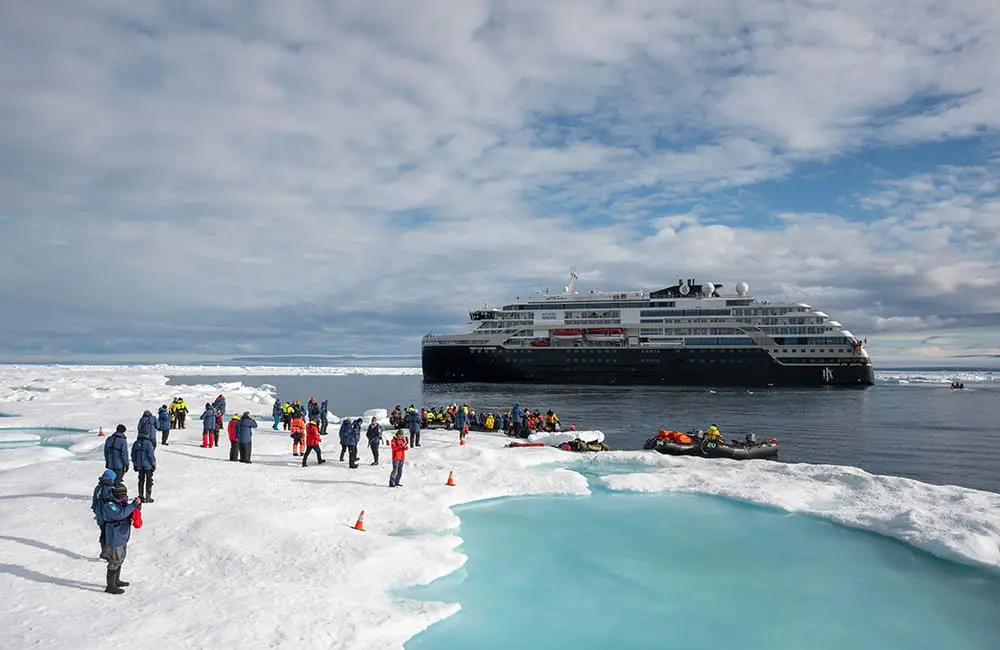
Little changes can make a big difference
Conducting research onboard the ships and explaining their work to guests also helps early-career researchers to hone their communication skills. Meraldi says, “Having to put research into words that anyone can understand is not an easy task, and it’s vital that we share important research with the wider world.
“We are witnessing many governments cutting research funds and we have a huge responsibility to step up. It’s our planet – we need to look after it. Understanding what is happening and why helps us all protect it.”
Morgan says, “Our owners and our CEO, Gebhard Rainer, remind us that success isn’t just about a balance sheet. It’s about how we change behaviour and engage our guests in the destination. And then what they do afterwards, when they go home. It’s helping people realise that little changes can make a big difference.”
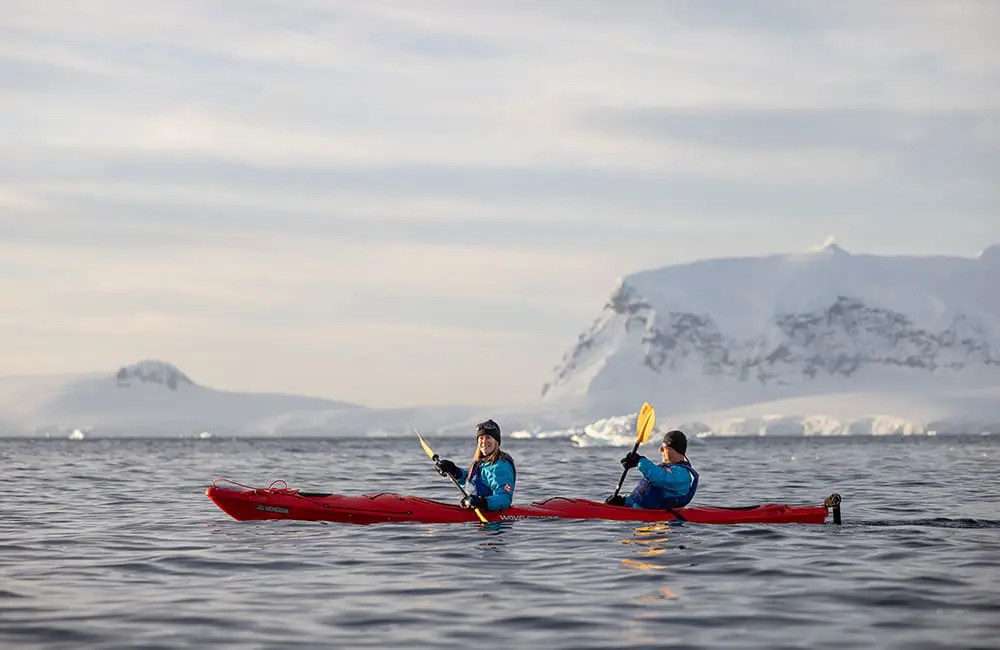
2027-2028 voyages
HX has just released its 2027-2028 itineraries, which it says focus on deepening its existing journeys, offering more immersive and community-led experiences in the world’s most remote and extraordinary places.
One initiative that is attracting plenty of attention is expanding this year’s onboard Greenlandic chef experience, which has had rave reviews. Not only do guests sample Greenland’s traditional cuisine, but they can also chat with the chefs (when they are not busy cooking up local specialities) to learn more about the country’s culture and history.
Another HX initiative is building on its programs in Arctic Canada, part of the Northwest Passage Itinerary, which feature shore experiences co-designed with Inuit Elders. Guests will meet local residents who have been there for generations, offering insights not normally found in tourist brochures.
HX is taking camping under the stars in Antarctica to a new level with its bivouacking experience, and adding new kayaking programs for beginners along with extended adventures for more experienced kayakers.
For more information, visit HX Expeditions



